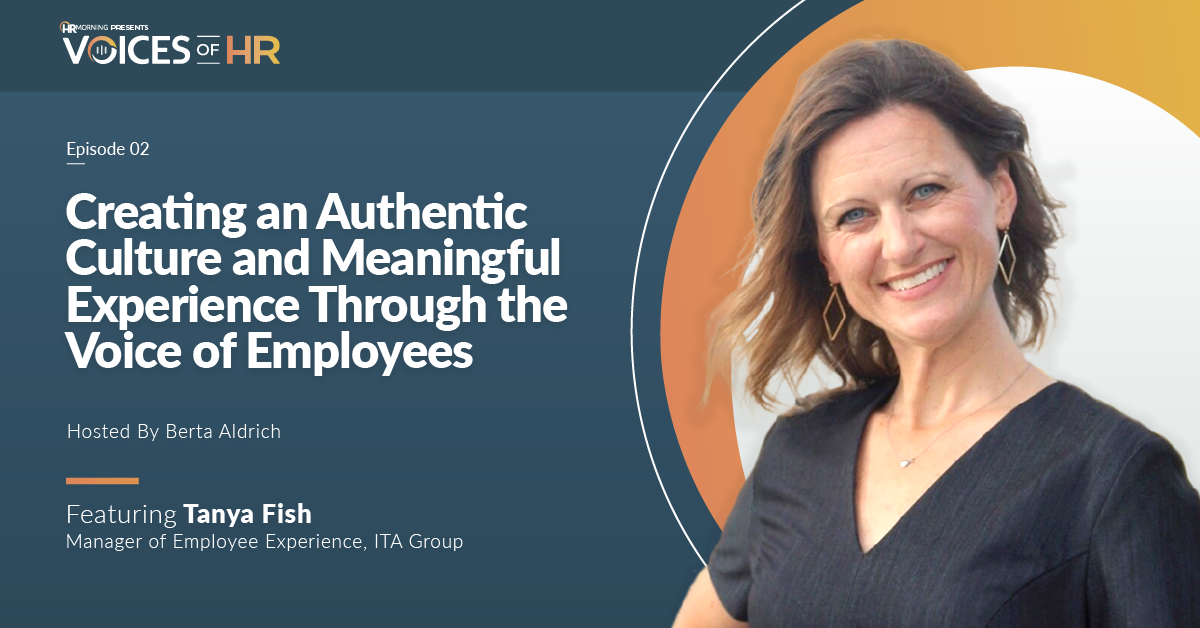A rock-solid organizational culture bolsters engagement, productivity and loyalty among your employees. But that’s a lot easier to say than it is to execute.
Tanya Fish, the manager of employee experience solutions for ITA Group, said that she’s seen many companies where executive leadership’s perception of the culture is starkly different from what their employees experience every day (and is reflected to customers and other stakeholders).
“What the people believe, and how they behave, is what defines the culture, and ultimately defines how successful any business strategy will be,” she said in a new episode of the HRMorning podcast “Voices of HR,” titled “Creating an Authentic Culture and Meaningful Experience Through the Voice of Employees.”
“When what’s on paper (and) on websites, and what is believed by leadership, doesn’t match the energy and feeling that people have when they walk in the building, there’s likely a disconnect. And I think a lot of us probably have worked for companies where the marketing for why you should work there looks fantastic – and it’s award-winning in many cases – but then you walk in the door and your energy is depleted.”
The key strategy for HR to turn that around is ongoing listening for:
- What company leaders believe
- What the employee perception of company culture is, and
- How different people describe your culture.
Shaping your culture with the help of data
Gathering quantitative and qualitive data through engagement and satisfaction surveys and focus groups is one effective method of ongoing listening.
If you’re new to surveying your people, naturally you may have doubts about whether they’ll share their true feelings about their work experience because of lack of faith in confidentiality and fear of retaliation. That’s why Fish recommended enlisting a third party to conduct the surveys and lead the conversations, without management or HR in the room.
Becoming a better workplace
Questions to put to employees that could be particularly revealing:
- What are two reasons you’ve chosen to work for this company?
- What are two reasons you choose to stay at the company?
- What are your top two reasons why you might choose to leave?
- What are the “superpowers” of this company?
“And with that, you get some really good words that are authentic and real and relatable,” she said.
Voices of HR host Berta Aldrich replied, “So it’s reality – how they’re feeling today, maybe projecting out what it could be, and then really ending on a positive note to help you create this consolidated brand – which would be the superpowers.”


